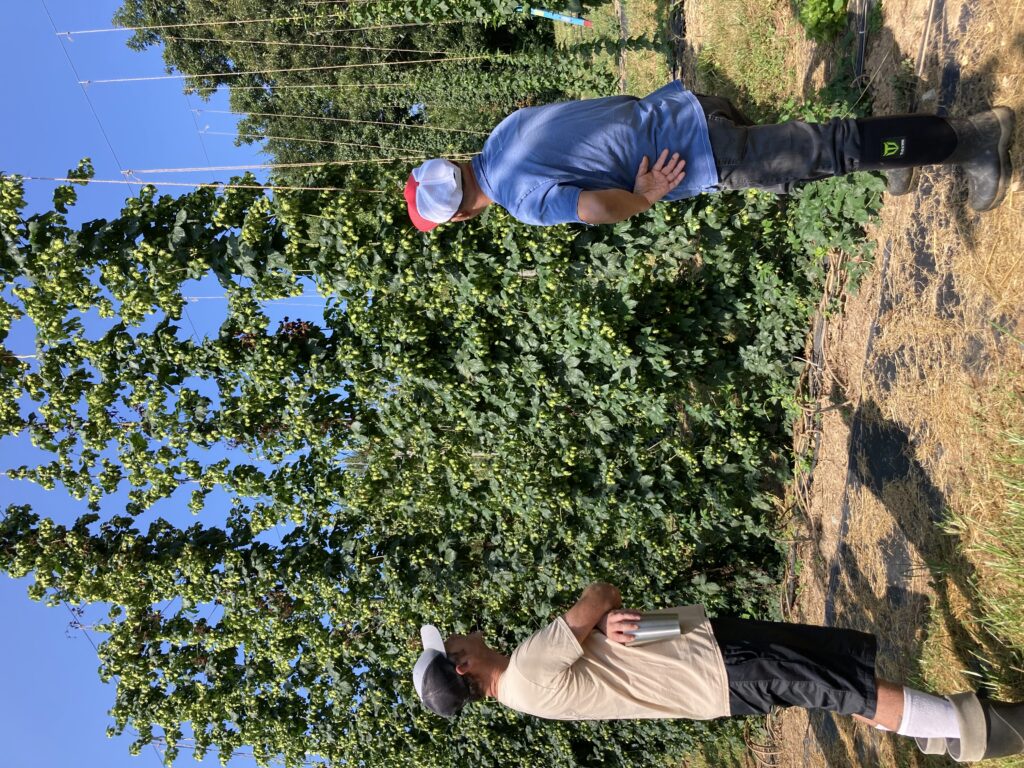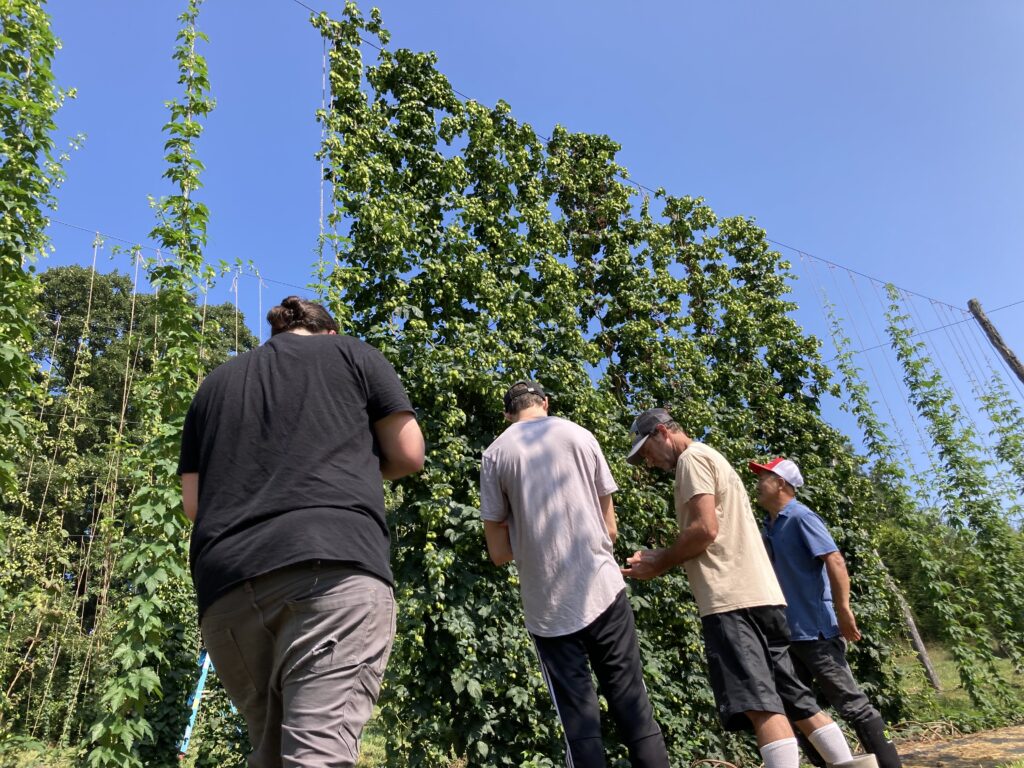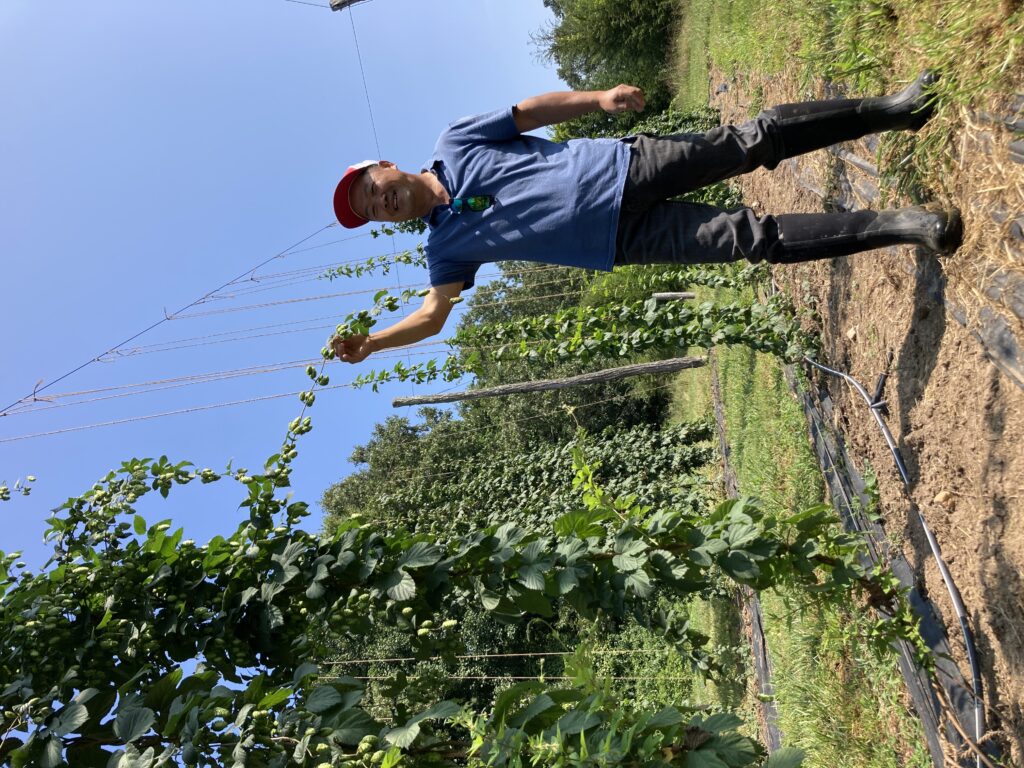Brewers Visit NC Hops Breeding Program
go.ncsu.edu/readext?814802
en Español / em Português
El inglés es el idioma de control de esta página. En la medida en que haya algún conflicto entre la traducción al inglés y la traducción, el inglés prevalece.
Al hacer clic en el enlace de traducción se activa un servicio de traducción gratuito para convertir la página al español. Al igual que con cualquier traducción por Internet, la conversión no es sensible al contexto y puede que no traduzca el texto en su significado original. NC State Extension no garantiza la exactitud del texto traducido. Por favor, tenga en cuenta que algunas aplicaciones y/o servicios pueden no funcionar como se espera cuando se traducen.
Português
Inglês é o idioma de controle desta página. Na medida que haja algum conflito entre o texto original em Inglês e a tradução, o Inglês prevalece.
Ao clicar no link de tradução, um serviço gratuito de tradução será ativado para converter a página para o Português. Como em qualquer tradução pela internet, a conversão não é sensivel ao contexto e pode não ocorrer a tradução para o significado orginal. O serviço de Extensão da Carolina do Norte (NC State Extension) não garante a exatidão do texto traduzido. Por favor, observe que algumas funções ou serviços podem não funcionar como esperado após a tradução.
English
English is the controlling language of this page. To the extent there is any conflict between the English text and the translation, English controls.
Clicking on the translation link activates a free translation service to convert the page to Spanish. As with any Internet translation, the conversion is not context-sensitive and may not translate the text to its original meaning. NC State Extension does not guarantee the accuracy of the translated text. Please note that some applications and/or services may not function as expected when translated.
Collapse ▲
A brewer and Dr. Luping Qu, hops breeder, studying one of the advanced hop breeding lines in the NC State University hop breeding yard in Mills River. Photo by Margaret Bloomquist.
8/11/2021 – Yesterday nine brewers, representing Sideways Farm & Brewery, Burning Blush Brewery, and Wicked Weed Brewing with their visitors from Tennessee, came out by special invitation to visit with Dr. Luping Qu in one of his hop breeding yards at the Mountain Horticultural Crops Research and Extension Center in Mills River, NC. Luping has been slowly, carefully, and quietly breeding hops for the Southeastern United States. The popular, commercially available hop varieties were all bred for the northern states, particularly Washington, Oregon, and Idaho. They perform pretty well in the new northern hop growing regions in Michigan, New York, and Vermont, for example. But when you bring those varieties south, the yields drop off dramatically. This is because hops are a photoperiod sensitive plant, i.e., they flower in response to changing day length. And our days are shorter here, and that reduces our yields. Yields can be increased by extending the day length by adding lights to the hop yard, but that is expensive, not practical in many cases, and has environmental consequences.

Three brewers and Dr. Luping Qu examining one of his advanced breeding lines in the research hop yard on the NC State University research station in Mills River. Photo by Margaret Bloomquist.
So, Luping has been breeding hops that naturally produce higher yields in the south. He is also selecting for resistance to the disease, Downy Mildew, and for interesting flavors and aromas. Currently, he has two lines that he is very excited about. He has both growing in trials on hop farms in North Carolina. As you can see in the picture above, the plants directly in front of the brewers are much fuller and taller than those in the plots on either side or behind them. This is one of the lines he is anxious for these brewers to evaluate this year. He will also send samples off to the Enology Services Lab at Virginia Tech for analysis.

Dr. Luping Qu showing off one of the long side-arms, covered with hop cones, on one of his advanced breeding lines on the NC State University research station in Mills River. Photo by Margaret Bloomquist.
One of the traits Luping looks for in his selection is long side-arms because they are where more cones can be produced. As he is demonstrating in the photo above, these new lines have side-arms that are 36 inches long or longer. In comparison, the plants in the plot behind him do not have any side-arms evident.
Follow our hops progress on our NC Alternative Crops & Organics Program website.
We thank the N.C. Department of Agriculture and Consumer Services (NCDA&CS) New and Emerging Crops Program for their current financial support and the NCDA&CS Specialty Crops Block Grant Program for past financial support. You can support our program by donating online through this secure NC State Univerity donation site.


